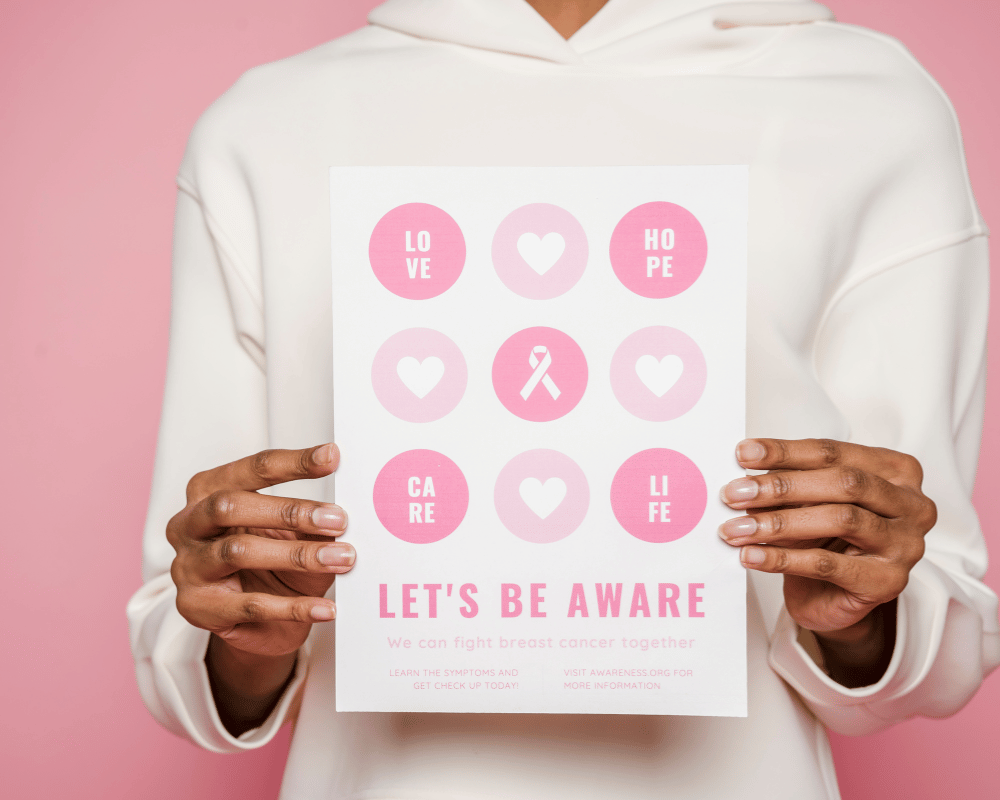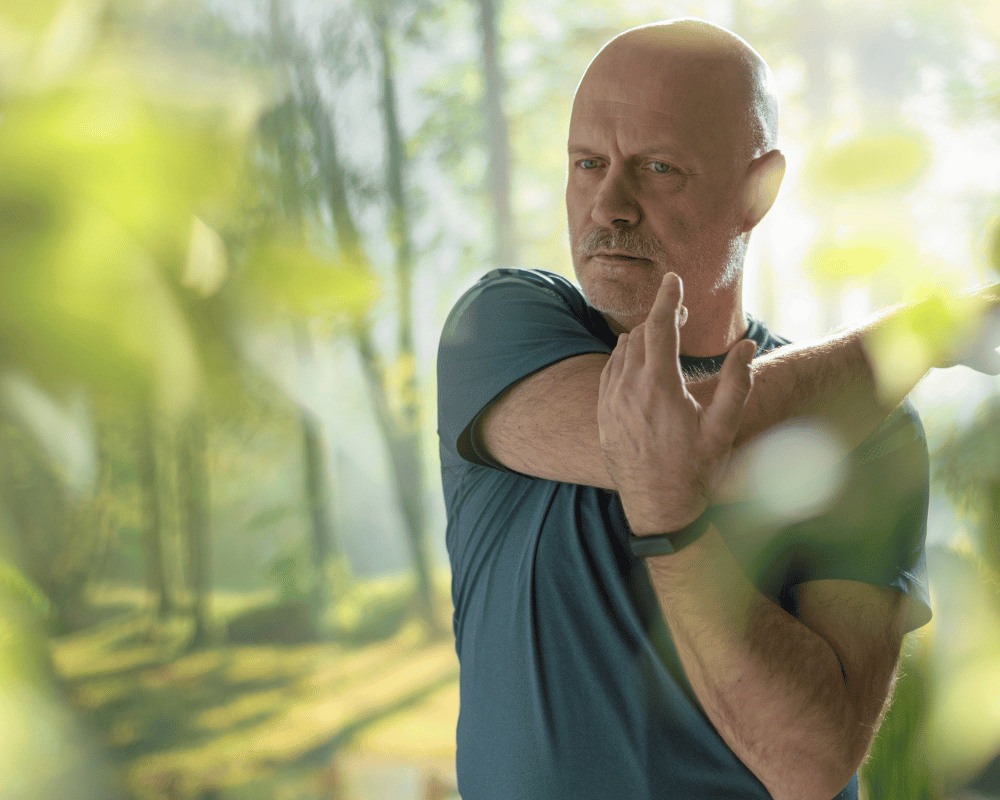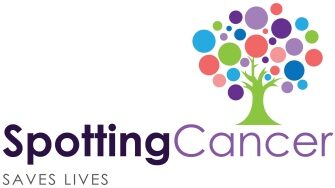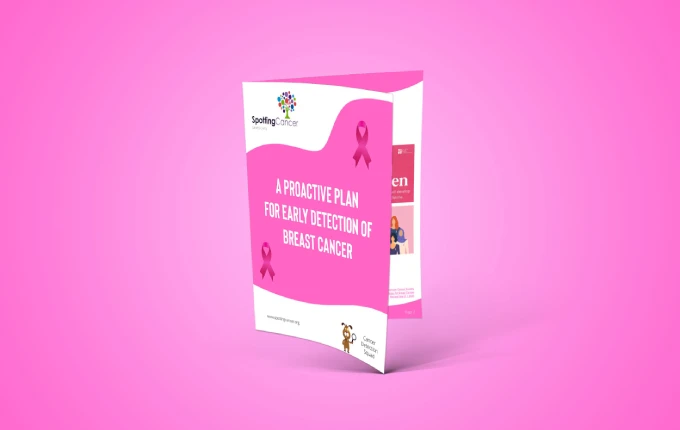Spotting Cancer Blog
Spotting Lung Cancer Early: What You Need to Know
Lung cancer is the leading cause of cancer-related deaths worldwide—but early detection can save lives. In this video, we break down what everyone should know about lung cancer, including: Who’s at risk: smokers, former smokers, and even non-smokers exposed to secondhand smoke, radon, or workplace toxins. Environmental & lifestyle factors: air pollution, asbestos exposure, and family history. Common warning signs: a persistent cough, chest pain, shortness of breath, coughing up blood, fatigue, and unexplained weight loss. What to do: If

From Fear to Empowerment: How Early Screening Turns Anxiety Into Action
If the word “screening” makes your stomach drop, you’re not alone. Many of us avoid tests because we fear bad news, feel embarrassed, or believe myths like “If I feel fine, I’m fine.” But here’s the empowering truth: early screening is one of the most compassionate things you can do for your future self. It transforms uncertainty into a plan—and a plan is powerful. Why Stage 1 Matters (and How It Differs From Later Stages) Think of cancer like a
Breast Cancer Awareness Month – Signs & Symptoms
Do you know the signs and symptoms of breast cancer? Regular breast imaging and mammogram screenings are vital for early detection. If you notice a lump in breast or any other changes, consult your doctor about breast cancer treatment and maintaining optimal breast health. Early detection saves lives. Talk to your doctor today about breast cancer screening. Download our Breast Cancer Guide Thanks for watching! Want to help others spot cancer early? Donate today!

Ryne Sandberg’s Legacy—and the Hidden Dangers of Prostate Cancer: Why Proactive Screening is Essential for Men Over 45
When legendary Chicago Cubs second baseman Ryne Sandberg passed away in July 2025 from metastatic prostate cancer, the sports world mourned a true icon—and health advocates were reminded of a sobering truth: prostate cancer often remains silent until it’s too late. A Sudden Turn: From Remission to Spread Sandberg was first diagnosed with metastatic prostate cancer in early 2024 and responded well to treatment, achieving remission by later that year. But within months, the disease returned—and this time, it had
Prostate Cancer Awareness
Prostate cancer is one of the most common cancers in men—and one of the most dangerous when it goes undetected. Because early-stage prostate cancer often has no symptoms, regular screening is critical for men over 50 (and even sooner if you’re high risk). In this video, we cover: Why prostate cancer often goes unnoticed The importance of PSA tests and Digital Rectal Exams (DRE) Advanced screening options for high-risk men A practical screening plan to protect yourself and your loved
What is Appendix Cancer
Appendix cancer is rare—but early detection can make a life-saving difference. In this video, we break down what appendix cancer is, how it forms, and why awareness matters. Knowing the signs, symptoms, and risk factors can help you or someone you love catch it early. Watch, learn, and share to help us spread the word. 👉 Early detection starts with education. Thanks for watching! Want to help others spot cancer early? Donate today!
Download Our Spot and Survive Guides Free Now!
Recent Posts
- Spotting Lung Cancer Early: What You Need to Know
- From Fear to Empowerment: How Early Screening Turns Anxiety Into Action
- Breast Cancer Awareness Month – Signs & Symptoms
- Ryne Sandberg’s Legacy—and the Hidden Dangers of Prostate Cancer: Why Proactive Screening is Essential for Men Over 45
- Prostate Cancer Awareness
Archives
- November 2025
- October 2025
- September 2025
- August 2025
- July 2025
- June 2025
- May 2025
- April 2025
- March 2025
- February 2025
- December 2024
- November 2024
- September 2024
- June 2024
- April 2024
- September 2023
- August 2023
- July 2023
- June 2023
- April 2023
- March 2023
- February 2023
- January 2023
- December 2022
- October 2022
- August 2022
- June 2022
- May 2022
- April 2022
- March 2022
- November 2021
- September 2021
- August 2021
- July 2021
- November 2020
- October 2020
Get the Proactive Plan For Early Detection of Breast Cancer Guide
Join a Movement Committed to Ending Unnecessary Cancer Deaths
Take action!

Hi, I’m Oakley! I’m here to inspire wisdom & learning about what you can do to spot cancer early. Follow my lead, and I’ll show you how to #SpotandSurvive!
Check Out Our Video Library
Go to Videos
Join the Cancer Detection Squad
Learn How
Make a Charitable Donation
Donate Now
Print FREE Guides to Spot & Survive
Learn More
As a nonprofit organization, SpottingCancer.Org relies on donations to fund our outreach efforts. However, what is just as important as monetary donations is the donation of time and energy that individuals like you make towards learning about cancer-spotting habits and then spreading that knowledge to your friends and loved ones.


